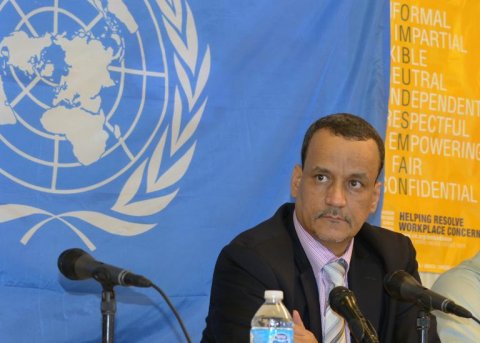The United Nations special envoy for the conflict in Yemen warned UN ambassadors on Tuesday that a fledgling peace process was hanging by a thread.
The United Nations special envoy for the conflict in Yemen warned UN ambassadors on Tuesday that a fledgling peace process was hanging by a thread.
At the weekend Yemen's Saudi-backed ousted government and the national delegation wound up peace talks in Switzerland without a breakthrough.
On the ground ceasefire violations are continuing even as UN humanitarian agencies warn that civilians are under fire and living in desperate conditions.
"The talks revealed deep divisions between the two sides on the path to peace and the shape of a future agreement... trust between the parties remain weak," UN envoy Ismail Ould Cheikh Ahmed warned.
Ahmed called for a stronger ceasefire agreement and urged UN member states to support his efforts to mediate a dialogue in the run-up to renewed talks next month.
"I have to admit that there were several days when I feared that the two sides would not find a way to make progress on any of the central issues," he said.
"We all know that the path to peace in Yemen will be a long and difficult one -- but we also know that failure is not an option," he insisted.
Human rights watchdogs have accused the Saudi-led coalition of the careless aerial bombing of civilian targets.
The situation for the surviving civilian population is dire.
The UN High Commissioner for Human Rights, Zeid Ra'ad Al Hussein told the UN Security Council that the Saudi-led coalition was responsible for a "disproportionate amount" of the strikes hitting civilian homes, schools and hospitals.
"Conditions of life have become untenable for the vast majority of people in Yemen," he said.
"I call on the council to do everything within its power to help restrain the use of force by all parties and to urge all sides to abide by the basic principles of international humanitarian law."
According to UN figures, the war in Yemen has killed 2,700 civilians, including 637 children, and left four fifths of the 21 million-strong population in need of humanitarian aid.